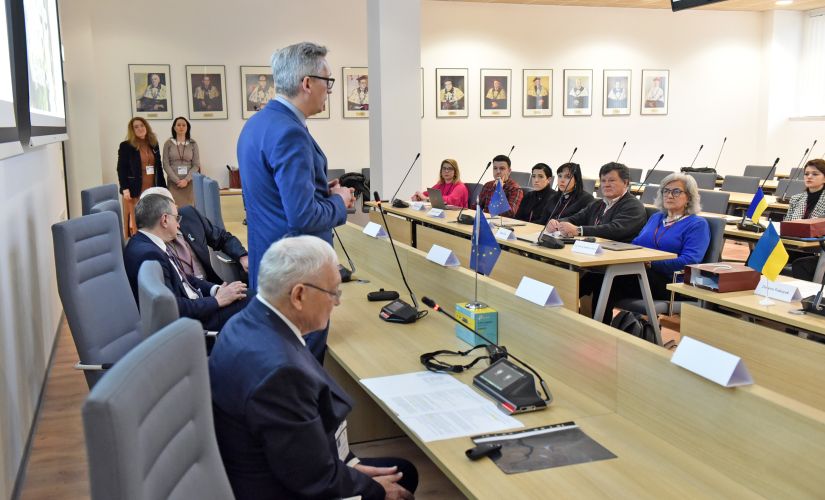Coordinated by Lodz University of Technology, ‘Life Mercury-Free’ project seeks to effectively address the issue of environmental mercury contamination caused by mishandled disposal of everyday goods that contain mercury.
‘This is an extremely significant project as the level of mercury contamination of soil and seawater has been steadily increasing,’, the project coordinator prof. Volodymyr Mosorov of the Institute of Applied Computer Science explained during a press briefing.
An important aspect of the project is the participation of Ukrainian universities - Lviv Polytechnic National University and the Ivano-Frankivsk Academy of Ivan Zolotoustoy, which is particularly meaningful during this challenging time of war. Furthermore, Ukraine is not a signatory to the Minamata Convention on Mercury, which concerns phasing-out of mercury-containing products, e.g., batteries, thermometers, and certain fluorescent lamps, and curbing the extraction, marketing and manufacturing use of this toxic element.
‘We hope that one of the outcomes of our efforts will be to raise the awareness of the Ukrainian authorities as regards the Convention and its adoption," prof. Mosorov said.
The primary objective of the project is to make your average Joe and your plane Jane aware of just how harmful mercury is and, consequently, how urgent the need to eliminate household goods containing mercury.
‘Changing people’s way of thinking is no mean feat’, prof. Mosorov points out. ‘We intend to get our message to every single household’.
What has the consortium planned for the next three years?
The LIFE e-HUB, a European digital platform, will serve as the main source of information, data and knowledge concerning the project, including information about mercury-containing items you may have at home. Sports events will be held. The popularity of running should help attract large numbers of people wanting to take part in international mercury-free city marathons that will be held in Łódź and Kraków. ‘The word ‘marathon’ does not mean the official distance of 42 km. It is used figuratively, as a symbol rather. What is more important is the idea of running’, prof. Mosorov explains. In their quest to find a solution to the problem, the consortium will also organize an e-conference, ‘Mercury-Free City: Danger in our Homes’, and summer schools intended for municipalities, NGOs, and educational institutions.

